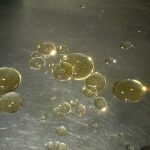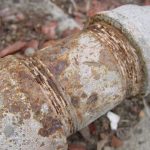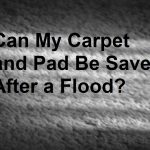Many homeowners have been placed in a position where they have resorted to flushing various items down the toilet. Some people are simply unaware of the dangers, and others are more reckless in their flushing habits. When you flush anything other than toilet paper and human waste down the toilet, you’re running the risk of creating a clog or causing damage to your plumbing. In this article, we will look at ten items that you should never flush away.
- Bathroom Wipes
This is an extremely common item that your
certified local plumber will find as part of a clog in a toilet system. These are moist cleaning towelettes that are often described as “flushable cleaning wipes,” and this just isn’t advisable. These bathroom wipes are not degradable, and they often get stuck in sewer systems. This can cause damage as the waste blocks the sewage line and a professional plumber will need to clear the blockage. A bathroom wipe is very effective at cleaning your toilet, but it should be thrown straight into the trash when you’ve finished using it.
- Cat Litter
Cat litter is designed to absorb moisture making the material easier to dispose of when you’re ready to place it in the trash. The toilet is filled with water and adding a material that can absorb it is an extremely bad idea. The cat litter can swell inside the sewer line and cause a clog that will need to be manually removed. This is equally true for any other material that contains sand that can absorb water.
- Disposable Diapers
Once a disposable diaper is full it would seem natural to flush it because it contains human waste. It may be possible to flush a disposable diaper if you flush the toilet a few times, but it’s not advisable. A disposable diaper isn’t biodegradable, it won’t break down on its own, and it can easily catch and become jammed in the U-bend. This will cause a clog that will be very difficult to remove without the help of a professional plumber. It’s a better idea to use a dedicated used diaper pail to seal the diaper prevent foul odors until it’s ready to be emptied in the regular trash.
- Dental Floss
Many bathrooms have the sink located near the toilet, and it can be tempting to throw small items in and flush them away. Many people throw their used dental floss into the toilet, but this is not a great idea. Again, dental floss is not biodegradable, it’s a thin, tough material that will not break down on its own and it’s not something that you want in your sewer line. Dental floss can easily tangle with other waste to create a formidable clog that will only grow larger and more persistent over time. Reach a little further and throw that used dental floss in the trash where it belongs.
- Fat, Oil and Grease
These may seem more like materials that you may find poured into the kitchen sink drain (another bad idea). But, plumbers do find these materials in sewer lines after they have been poured into a toilet and flushed away. Fat, oil and grease are all effective at creating formidable clogs in your plumbing system. They accumulate on the inner surface of the pipe; they become solid and then act as a glue for other materials. This will ultimately result in a plug of clogged up fatty material mixed with other items that will block the toilet and/or sewer line. Always scrape fatty materials into the trash or place used grease in a jar for purification and then reuse it later.
- Cigarette Butts
Some people enjoy smoking cigarettes in the bathroom, and then they dispose of the butts in the toilet and flush. This is a bad idea; a typical cigarette contains a number of toxic chemicals that should be kept away from the sewer system. A cigarette butt can easily combine with other materials to form clogs, and they are better off in the trash.
- Kitchen Paper Towels
The more formidable thick quilted paper towels used in many kitchens should not be placed in the toilet and flushed away. These types of paper towels are nothing like toilet paper, and they can absorb a great deal of water. As such, they can quickly expand and block a sewer line, and they will need to be removed manually. Many people use kitchen towels to clean mirrors and other surfaces in their bathrooms. This is an effective disposal cleaning cloth, but always place it in the trash when you’re finished with it.
- Used Band Aids
For many people, their bathroom serves as the first aid station for the entire home. It’s not unusual to find a first aid kit located there, and this will contain useful band aids for minor injuries. As useful as band aids are, they are made from non-biodegradable plastic materials, and they can cause a clog in your plumbing system. When you change or remove a band aid in your bathroom always place the used band aid in the trash.
- Feminine Hygiene Products
The entire purpose of a pad or tampon is to absorb moisture and keep it away from your body. These types of feminine hygiene products are extremely effective, and they can swell a tremendous amount when exposed to water. Placing these items in a toilet is a terrible idea, and they can easily block your sewer pipe. Always place used hygiene products in the trash and your plumbing system will thank you.
- Prescription Medications
All modern prescription medications contain toxins that can cause damage to the environment. In recent years, scientists have noticed an increase in the quantities of drugs in our water supplies from byproducts in human waste and flushed pharmaceutical products. This has resulted in changes to flora and fauna located in our waterways, and it’s a considerable threat to the quality of our drinking water. Flushing prescription medications will not normally clog your toilet, but if you want to help out the environment, please dispose of them responsibly.
By Giovanni Longo President Flood Brothers Plumbing
Giovanni Longo is a 3rd generation master plumber who has been practicing his craft and trade in the greater Los Angeles area for well over a decade and a half. A plumbing and hydraulics-engineering innovator, Giovanni’s particular world-class expertise focuses on dealing with challenging sewer system designs as well as resolving complex commercial and residential draining issues. As a certified Flood Mitigation expert, he is also well versed in a wide variety of water damage and remediation solution.





